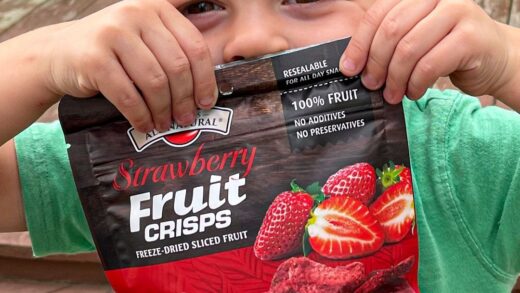Grilling is not only a delightful way to cook but also a healthier option. When it comes to nutrient preservation, high-heat grilling shines. The intense heat and minimal water used in grilling help retain the nutrients in food, ensuring that you reap the maximum benefits from your meals.
Grilling also offers other advantages, such as reducing the fat content in meat, making it a leaner choice. This makes it an ideal cooking method for those looking to manage their weight and maintain a healthy lifestyle. Furthermore, grilling outdoors can boost your vitamin D levels as you soak up the sunshine while preparing your delicious meals.
Key Takeaways of Nutrient Preservation in High-Heat Grilling:
- Grilling helps preserve the nutrients in food due to the high temperature and minimal water used.
- Reduced fat content in grilled meat makes it a healthier option for weight management.
- Grilling outdoors increases vitamin D production in the body.
The Health Benefits of Grilling
Grilling offers numerous health benefits. The gentle cooking method helps retain more nutrients and antioxidants in food compared to frying or roasting. It also reduces the amount of unhealthy fats consumed, aiding in weight management. Grilling creates a flavorful crust on the food through the Maillard reaction, resulting in delicious food without the need for extra fats or sauces. Moreover, grilling outdoors can have mental health benefits, such as reducing stress levels and promoting mindfulness. Being outside while grilling can improve heart health and energy levels and boost mood and Vitamin D levels.
Retaining Nutrients and Antioxidants
When you grill your food, you can enjoy the health benefits of nutrient retention. Grilling helps preserve vitamins, minerals, and antioxidants present in the ingredients. Unlike other cooking methods that can cause nutrient loss, the high heat of grilling seals in the natural goodness of the food.
Reduced Fat Consumption
If you’re watching your fat intake, grilling is an excellent cooking method to consider. It allows excess fat to drip away from the food as it cooks, resulting in reduced fat consumption. This makes grilled dishes a healthier choice for weight management and heart health.
Achieving Flavorful Food
One of the outstanding advantages of grilling is the ability to achieve flavorful and delicious meals without relying on excessive fats or sauces. The Maillard reaction that occurs during grilling creates a flavorful crust on the food, enhancing its taste and texture. This means you can enjoy mouthwatering dishes that are both satisfying and healthy.
“Grilling creates a flavorful crust on the food through the Maillard reaction, resulting in delicious food without the need for extra fats or sauces.”
Mental and Physical Health Benefits
Grilling not only benefits your physical health but also contributes to your mental well-being. Being outdoors while grilling can reduce stress levels, promote mindfulness, and enhance overall mood. Additionally, grilling outdoors allows your body to absorb vitamin D from sunlight, which is crucial for bone health, immune function, and mood regulation.
In summary, grilling offers a range of health benefits, including retained nutrients, reduced fat consumption, and flavorful meals. Additionally, the mental and physical advantages of grilling outdoors make it an enjoyable and wholesome cooking method. So fire up the grill and embrace the health benefits that come with this delightful culinary practice.
Grilling Safely with American Made Grills
While grilling has numerous health benefits, it is essential to prioritize grilling safety. Follow these grilling tips to ensure a safe and enjoyable experience:
- Check your grill: Before each use, inspect your grill for any signs of damage or wear and tear. Ensure that all parts are functioning properly and that there are no gas leaks.
- Keep a safe distance: Set up your grill in a well-ventilated area, away from flammable objects such as trees, fences, or structures. Maintain a safe distance of at least ten feet.
- Never leave unattended: It’s crucial to never leave a grill unattended, especially when it’s in use. Always keep an eye on the flames and the cooking food to prevent accidents.
- Avoid overcooking: Overcooking food on the grill can lead to the formation of harmful carcinogens. Use a food thermometer to cook meat and poultry to the appropriate internal temperatures, ensuring both safety and flavor.
If you’re looking for high-quality grills and accessories, consider American Made Grills. They offer a wide range of options, including luxury grills and hybrid grills, designed to elevate your outdoor grilling experience.
| Grilling Tips | Benefits |
|---|---|
| Check grill condition | Ensures safe operation |
| Keep a safe distance | Prevents accidents and fire hazards |
| Never leave unattended | Enhances safety and avoids mishaps |
| Avoid overcooking | Minimizes the formation of carcinogens |
Nutritional Advantages of Grilling
Grilling food offers several nutritional benefits, making it a popular cooking method for health-conscious individuals. The high heat levels used in grilling can enhance the taste of food by transforming flavor precursors into complex flavor molecules. Additionally, grilling creates a crispy exterior and moist interior, adding texture to the food and making it a delightful dining experience.
Research suggests that grilling can also improve the nutrient content of food. When food is grilled, the heat causes vitamins and minerals to leach out into the food, increasing its nutritional value.
“Grilling food not only enhances its taste but also preserves its essential nutrients. The high heat levels in grilling lead to the release of vitamins and minerals from the food, making it a nutrient-rich option.”
Furthermore, grilling is known to reduce the risk of chronic diseases. Studies have shown that grilled foods, especially vegetables and lean meats, have a lower risk of heart disease, certain cancers, and type 2 diabetes. The combination of enhanced flavors, improved texture, and increased nutrient content makes grilling a nutritious and delicious cooking method.
To visualize the nutritional benefits of grilling, let’s take a look at the nutrient content comparison of two commonly grilled foods: chicken breast and asparagus.
| Nutrient | Chicken Breast (Grilled) | Asparagus (Grilled) |
|---|---|---|
| Protein | 24g | 4g |
| Iron | 0.9mg | 2.1mg |
| Vitamin C | 0mg | 8mg |
| Vitamin A | 0IU | 1013IU |
Note: The values mentioned in the table represent approximate nutrient content per 100g serving of grilled chicken breast or asparagus.
From the comparison, it is evident that grilling enhances the nutrient content of both chicken breast and asparagus. Chicken breast is a great source of protein, while asparagus provides essential vitamins and minerals such as iron, vitamin C, and vitamin A.
By incorporating a variety of grilled foods like vegetables and lean meats into your diet, you can obtain a wide range of nutrients while enjoying the flavorful advantages that grilling offers.
Grilling not only provides a delicious and satisfying dining experience but also contributes to a well-balanced and nutritious diet.
Marinating and Smart Cooking Techniques
Marinating food before grilling not only adds flavor but also helps preserve nutrients and create a protective barrier against the high heat. By choosing the right marinades and following smart cooking techniques, you can enhance the nutritional value of your grilled dishes while reducing harmful compounds.
Marinating for Grilling
Marinades are a combination of herbs, spices, acidic ingredients like lemon juice or vinegar, and oils that infuse flavor into the food and help tenderize it. When marinating meat, the flavors penetrate the surface, adding depth and enhancing taste. Additionally, marinating can minimize the formation of harmful compounds during grilling.
When marinating, consider the following tips:
- Choose marinades rich in herbs and spices, such as rosemary, thyme, and garlic, which not only add flavor but also provide antioxidants and anti-inflammatory properties.
- Incorporate acidic ingredients like lemon juice or vinegar, which can help break down proteins, making the meat tender and flavorful.
- Allow the food to marinate for at least 30 minutes to a few hours, or even overnight for more intense flavors.
Before grilling, remove the food from the marinade and discard any excess liquid to prevent flare-ups and charring.
Reducing Harmful Compounds
Flare-ups caused by dripping fat can lead to the production of harmful compounds, such as polycyclic aromatic hydrocarbons (PAHs) and heterocyclic amines (HCAs). These compounds have been linked to increased cancer risk.
To reduce the formation of harmful compounds when grilling:
- Trim excess fat from meat before grilling to minimize flare-ups.
- Use leaner cuts of meat, which tend to have less fat content.
- Avoid direct contact between flames and food by using indirect grilling methods or using a grill basket or foil.
By marinating your food and following these smart cooking techniques, you can enjoy flavorful grilled dishes while preserving nutrients and reducing the formation of harmful compounds. With the right approach, grilling can provide a delicious and healthy culinary experience.
Embracing the Rainbow on the Grill
Grilling is not limited to meats and burgers. Fruits and vegetables can also take center stage on the grill, offering a delicious and nutritious addition to your meals. Not only does grilling enhance the natural flavors of these colorful ingredients, but it also provides a range of vitamins and minerals, making them a valuable addition to any grilling session.
When grilling fruits and vegetables, you can unlock a world of diverse flavors and textures. Imagine the smoky sweetness of grilled pineapple, the charred perfection of grilled peppers, or the tender crispness of grilled zucchini. These grilled goodies not only provide a vibrant and tempting visual appeal but also offer a nutrient-rich alternative to traditional grill fare.
Adding a variety of fruits and vegetables to your grill not only diversifies your plate but also introduces a wide range of essential nutrients. Grilled peppers, for example, are a fantastic source of vitamins A and C, while zucchini offers a healthy dose of dietary fiber and potassium. Grilled watermelon can be a refreshing treat that’s not only hydrating but also provides vitamins A and C.
So, don’t stop at just grilling meats and burgers. Expand your grilling repertoire and experiment with a colorful assortment of fruits and vegetables. Your taste buds will thank you, and your body will benefit from the nutrient-rich grilled options.
Grilled Fruits and Vegetables to Try:
| Ingredient | Nutritional Highlights |
|---|---|
| Peppers | High in vitamins A and C, antioxidants |
| Zucchini | Good source of dietary fiber, potassium, and vitamin C |
| Pineapple | Rich in vitamin C, manganese, and bromelain |
| Watermelon | Hydrating, contains vitamins A and C |
By incorporating a vibrant array of grilled fruits and vegetables into your grilling sessions, you can elevate the flavors, enhance the nutritional content of your meals, and add a touch of color to your plate. So, embrace the rainbow on the grill and savor the delightful combination of flavors and nutrients that grilling fruits and vegetables can offer.
Grilling and Nutrient Loss
When it comes to grilling, it’s important to consider the potential loss of nutrients that can occur during the cooking process. Just like other cooking methods, grilling can cause some nutrient reduction, particularly in heat-sensitive vitamins like vitamin C and B vitamins. However, there are ways to minimize this nutrient loss and still enjoy the benefits of grilling.
One technique to minimize nutrient reduction is by using smart cooking techniques such as marinating. Marinating food before grilling can help preserve the nutrients and create a protective barrier against the high heat. Choose marinades that are rich in herbs, spices, and acidic ingredients like lemon juice or vinegar. Not only do these ingredients enhance the flavor of the food, but they also provide an extra boost of nutrients.
Incorporating a variety of fruits and vegetables into your grilling can also help minimize nutrient loss. These nutrient-rich ingredients not only add flavor and color to your meals but also provide essential vitamins and minerals. By diversifying your grilling menu and including a rainbow of fruits and vegetables, you can maximize the nutritional value of your grilled dishes.
“Using smart cooking techniques and incorporating a variety of fruits and vegetables can help minimize nutrient loss in grilling.”
While it’s true that grilling can cause some nutrient reduction, it’s important to note that it still offers numerous health benefits. The high heat and reduced cooking time of grilling help retain more nutrients compared to other methods like frying or boiling. Additionally, the flavorful results of grilling can encourage you to eat a larger variety of nutrient-dense foods.
So, while it’s important to be aware of nutrient loss in grilling, it shouldn’t discourage you from enjoying this delicious cooking method. By implementing smart cooking techniques, incorporating a variety of fruits and vegetables, and maintaining a balanced diet overall, you can still reap the many benefits of grilling while minimizing nutrient reduction.
Nutrient Loss in Grilling – Impact on Vitamins
Let’s take a closer look at the impact of grilling on specific vitamins:
| Vitamin | Effect of Grilling |
|---|---|
| Vitamin C | Grilling can cause a reduction in vitamin C content due to its heat sensitivity. However, this can be offset by consuming vitamin C-rich fruits and vegetables alongside grilled dishes. |
| B Vitamins | Grilling may lead to a slight decrease in B vitamin content. However, the impact can be minimized by using marinades or adding B vitamin-rich ingredients to grilled dishes. |
It’s important to note that while there may be some nutrient reduction during grilling, this cooking method still offers a range of benefits. By incorporating the right techniques and ingredients, you can enjoy delicious grilled meals while still nourishing your body with essential vitamins and minerals.
Grilling, a Delightful and Nutritious Cooking Method
When it comes to cooking, grilling is a fantastic option that not only provides delicious meals but also offers several health benefits. Grilling allows you to create flavorful and nutritious dishes while enjoying the great outdoors. By following grilling safety guidelines, balancing your ingredients, and incorporating smart cooking techniques, you can achieve a perfect balance between taste and nutrition.
One of the major advantages of grilling is its ability to preserve the nutrients in food. The high heat used in grilling helps retain essential vitamins and minerals, ensuring that your meals are packed with nutritional value. Unlike other cooking methods that may lead to nutrient loss, grilling allows you to savor the benefits of a balanced diet.
In addition to preserving nutrients, grilling also offers a unique and delicious flavor profile. The smoky and charred flavors created during grilling add depth and richness to your meals, making them more enjoyable. By embracing the natural flavors of the ingredients and using minimal seasoning, you can create flavorful dishes that are both satisfying and healthy.
Grilling also promotes balance in your diet. By cooking on a grill, you have the opportunity to incorporate a variety of ingredients, including lean proteins like chicken and fish, as well as an assortment of colorful vegetables. This allows you to create a well-rounded meal that is both delicious and nourishing.
Furthermore, grilling can be a mindful and enjoyable experience. The process of preparing a grill, tending to the food, and savoring the aromas and flavors brings a sense of relaxation and satisfaction. It allows you to engage with your meals and appreciate the holistic benefits of cooking outdoors.
To make the most of your grilling experience, follow these tips:
- Choose high-quality ingredients, such as locally sourced meats and fresh produce, to ensure the best flavor and nutrition.
- Marinate your meats and vegetables before grilling to enhance the taste and preserve moisture.
- Add a variety of herbs, spices, and seasonings to elevate the flavor of your dishes without relying on excessive salt or sugar.
- Pay attention to cooking times and temperatures to avoid overcooking or undercooking your food.
- Invest in a reliable grill and accessories to ensure safety and optimal cooking conditions.
Incorporating grilling into your cooking routine allows you to create flavorful and nutritious meals that are both satisfying and good for you. So, fire up the grill, gather your family and friends, and enjoy the benefits of grilling while indulging in delicious and wholesome food.
Conclusion
Grilling is not just a cooking method; it is a lifestyle choice that celebrates the joy of food, the beauty of nature, and the pleasure of sharing meals with loved ones. With proper techniques and considerations, grilling can be a flavorful and nutrient-rich way to prepare meals. By utilizing high-heat grilling, you can preserve the essential nutrients in your food while enjoying the delicious charred flavors.
Grilling offers a range of health benefits, including reduced fat consumption, enhanced flavor without excessive seasoning, and improved overall well-being. It is a healthier cooking method that can help you on your journey towards a balanced diet and a healthier lifestyle. So, fire up that grill and savor the benefits of nutrient preservation in high-heat grilling.
Whether you’re grilling meat, vegetables, or fruits, the key lies in finding the right balance in your grilling practices. Embrace a variety of ingredients, marinate for extra flavor and nutrient preservation, and choose high-quality American-made grills for a superior grilling experience. Take charge of your health and culinary enjoyment by exploring the exciting world of grilling and discovering the endless possibilities it offers. For more articles like this one, go to our blog!
FAQ
What are the health benefits of grilling?
Grilling offers numerous health benefits, such as preserving the nutrients in food, reducing fat consumption, and creating flavorful food without excessive seasoning or additives.
How can I grill safely with American Made Grills?
To grill safely, check the condition of your grill, keep it away from flammable objects, never leave it unattended, and use a food thermometer to cook food to the right temperature.
How does grilling enhance the nutritional value of food?
Grilling food increases its nutritional value by causing vitamins and minerals to leach out into the food. The high heat levels also enhance the taste of food through the Maillard reaction.
How can I preserve nutrients and reduce harmful compounds while grilling?
Preserve nutrients and reduce harmful compounds by marinating food before grilling, trimming excess fat, using leaner cuts, and avoiding direct contact between flames and food.
Can I grill fruits and vegetables? What are the benefits?
Yes, you can grill fruits and vegetables to enhance their natural flavors and provide a variety of nutrients. Grilling adds vibrancy and texture while maximizing the nutritional content.
Does grilling cause nutrient loss?
While grilling can cause some nutrient loss, smart cooking techniques like marinating and incorporating a variety of fruits and vegetables can minimize the impact on nutrient content.
Is grilling a delightful and nutritious cooking method?
Yes, when done right, grilling can be both delightful and nutritious. It offers a unique flavor profile while preserving the nutrients in food and allowing for healthier cooking methods.
Source Links
#Nutrient #Preservation #HighHeat #Grilling






